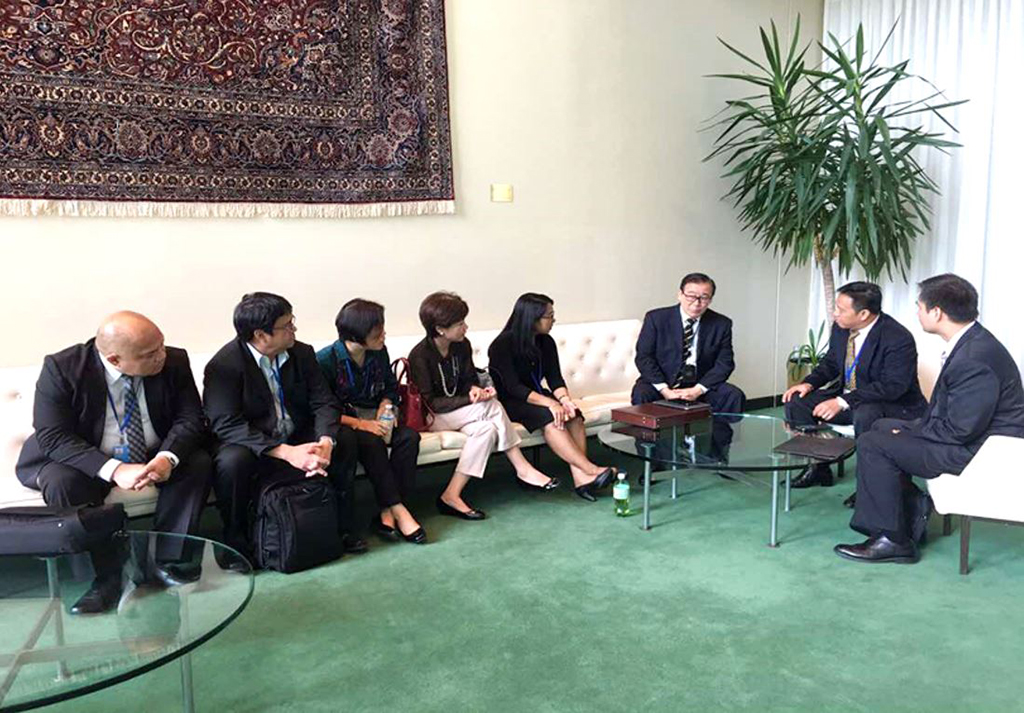
The fourth and final session of the Preparatory Committee (PrepCom4) on the conservation and sustainable use of marine biodiversity of areas beyond national jurisdiction (BBNJ) convened on July 10 to 21, 2017 at the UN Headquarters in New York, USA.
The PrepCom4 was attended by the representatives from United Nations (UN) member and non-member States, specialized agencies and related organizations, and intergovernmental and non-governmental organizations to finalize substantive recommendations on the elements of a draft text of an international legally binding instrument (ILBI) on BBNJ.
In the Resolution 69/292 of June 2015, the UN General Assembly (UNGA) decided to develop a new ILBI on BBNJ under the UN Convention on the Law of the Sea (UNCLOS).
The Philippines sent a delegation to the PrepCom4 to craft its position and counter proposal according to the statements delivered by other delegations.
The Philippine Council for Agriculture and Fisheries (PCAF) is among the agencies to participate in the conference together with the representatives from the Philippine Mission to the UN, Department of Agriculture (DA), Department of Foreign Affairs (DFA), Department of Environment and Natural Resources (DENR), and Bureau of Fisheries and Aquatic Resources (BFAR).
PCAF has been involved in the BBNJ discussion at the UN since 7th to 9th Ad Hoc Informal Working Group Meetings in 2014-2015 until the four series of PrepCom sessions held in 2016 and 2017 which was partaken by the Planning, Monitoring, and Knowledge Management Division (PMKMD) Chief Estrella Tulay, and Committee on Fisheries and Aquaculture (CFA) Focal Person Sarah Bales.
PrepCom4 adopts consensus outcome
The PrepCom4 on the conservation and sustainable use of marine biodiversity of areas beyond national jurisdiction concluded with the adoption of an outcome by consensus.
Delegates considered the revised Chair’s text containing draft recommendations to the UNGA which include a chapeau to the draft elements of a new ILBI.
“Chapeau” is a term used to describe certain kinds of international agreements needed to define the treaty practices among different countries.
The Preparatory Committee, having met in accordance with Resolution 69/292, recommended to the General Assembly “that the elements contained in Sections A and B be considered with a view to the development of a draft text of an international legally binding instrument under the UNCLOS on the conservation and sustainable use of marine biological diversity of areas beyond national jurisdiction. Sections A and B do not reflect consensus. Section A includes non-exclusive elements that generated convergence among most delegations. Section B highlights some of the main issues on which there is divergence of views. Sections A and B are for reference purposes because they do not reflect all options discussed. Both sections are without prejudice to the position of States during the negotiations.”
The PrepCom also recommended to the General Assembly “to take a decision, as soon as possible, on the convening of an intergovernmental conference, under the auspices of the UN, to consider the recommendations of the PrepCom on the elements and to elaborate the text of an international legally binding instrument under the Convention.”
The Philippine Delegation (PhilDel) was able to put forward considerable number of substantial input that were considered and included in the recommendations to the draft elements of the ILBI.
These inputs include the application of adjacency principle in the operationalization of the agreement, as well as the concept of connectivity, are high importance to the Philippines since our country is surrounded by two significant BNJ areas (South China Sea and Pacific Ocean).
Furthermore, the PhilDel were able to ensure that developing countries will be able to access and sustainably/equitably benefit from the marine biodiversity resources beyond our national jurisdiction, both in terms of monetary or non-monetary through capacity building and transfer of marine technology. – LC
– With reports from the International Institute for Sustainable Development (IISD)











